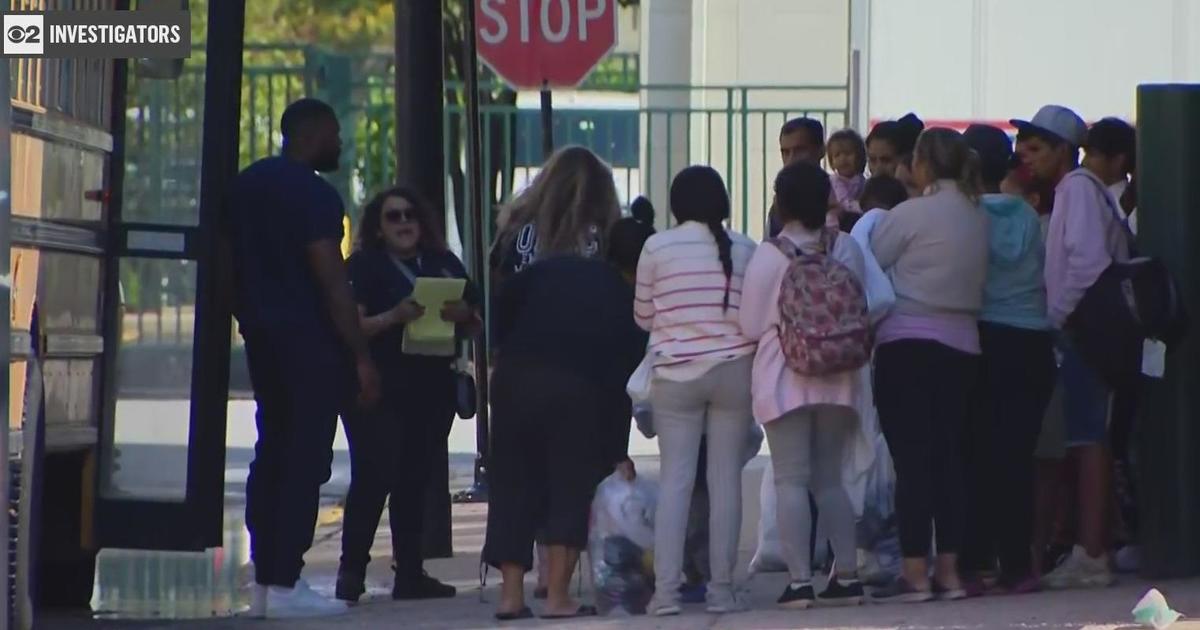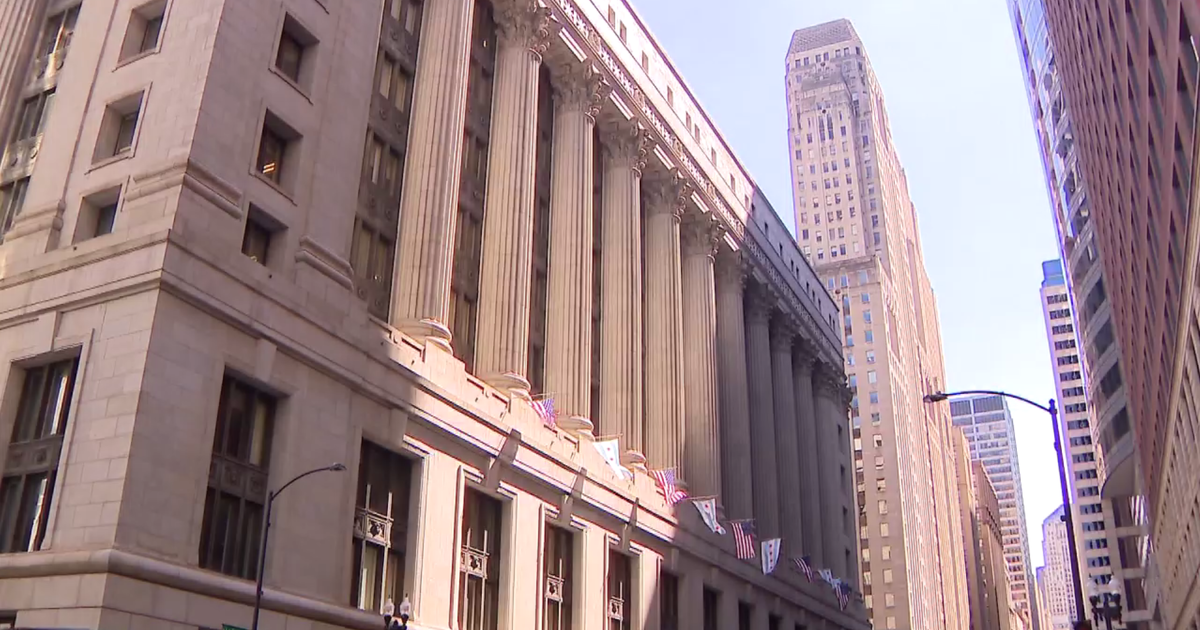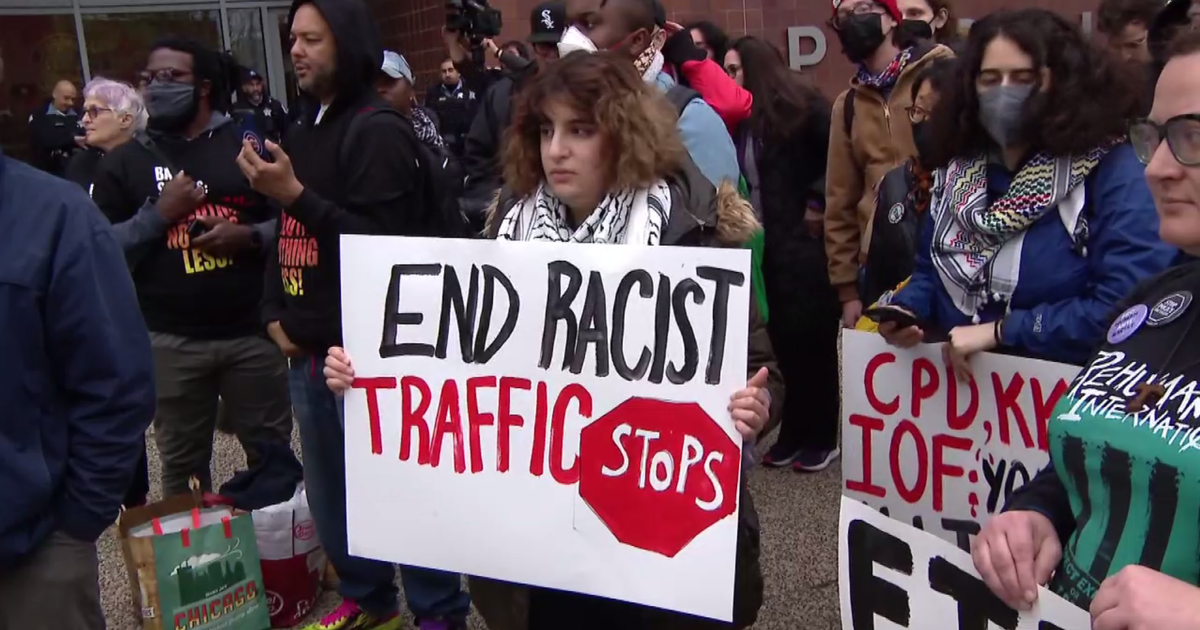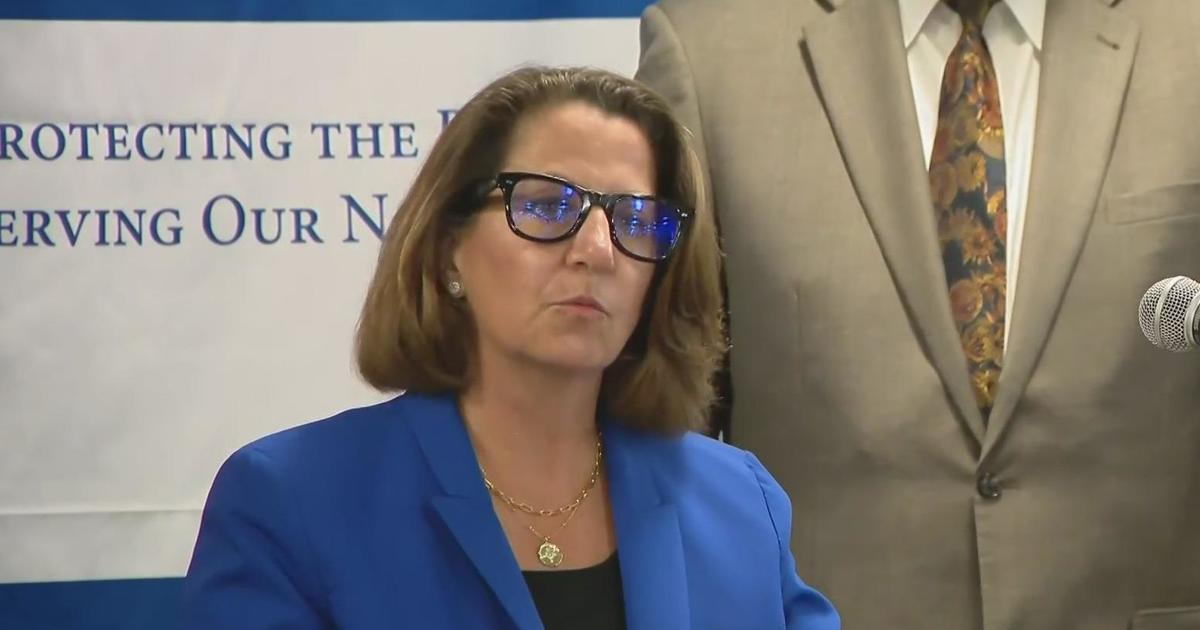City To Get $20M From Firm At Center Of Red-Light Camera Bribery
CHICAGO (CBS) -- The Arizona company at the center of a Chicago's scandal-scarred red-light camera program has agreed to pay Chicago taxpayers $20 million to resolve the city's claims, the Chicago Sun-Times is reporting.
In late December, the Department of Justice and the U.S. Attorney's office agreed not to seek criminal charges against Redflex Traffic Systems Inc. over a multi-million-dollar scandal involving red-light cameras in Chicago and Ohio.
The agreement stemmed, in part, to the company's "extensive and thorough cooperation" with the government in recent years, a statement from the U.S. Attorney's office said.
The company's cooperation included prosecution of former CEO Karen Finley, who was sentenced last fall to 30 months in prison after pleading guilty in 2015 to conspiracy to commit federal program bribery. Former City Hall insider John Bills was also sentenced to 10 years in prison.
Bills helped Redflex cheat its way to $131 million in red-light camera contracts between 2002 and 2011.
During a trial that lifted the veil on a red light camera program built on bribes not public safety, federal prosecutors proved that Bills was getting a kickback of up to $2,000 for every new camera added to a network that became the largest in the nation.
In return, prosecutors say Bills took $680,000 in bribes. That included $560,000 in kickbacks passed to Bills by Martin O'Malley, the elderly, recovering alcoholic Finley agreed to hire in late 2003 though he seemed far from qualified, or even "computer savvy." O'Malley was sentenced to six months in prison.
At that time, Redflex agreed to pay restitution and compensatory damages to the city in an amount to be determined at a civil trial or final judgment with the federal government.
Now, that settlement has been finalized in a way that will benefit Chicago taxpayers.
Under the terms of the settlement, Redflex will pay the city $5 million within 45 days and another $5 million to be paid before Dec. 31, 2017.
The remaining $10 million will be paid in increasing annual installments, starting at $1 million in 2018 and 2019, $1.5 million in 2020 and 2021 and $2.5 million for the final two years of the settlement, ending in 2023.
The company claims that the terms allow the scandal-scarred company under new management to remain "financially strong, with over 150 existing contracts in communities across the Americas."
"Today marks a new beginning for Redflex," the company's president and CEO Michael Finn was quoted as saying in a press release.
"Over the last four years, we took the actions every responsible company would have chosen and enhanced our compliance management, training and oversight functions. We have been recognized for our efforts by our customers and the government, and emerged with a single-minded focus to provide innovative public safety solutions. Thanks to our resilient and remarkable employees, we are well-positioned for this new day."
Mayor Rahm Emanuel, who was hounded about the red light camera scandal during his re-election campaign, hailed the settlement as evidence of his tough stance with the red-light camera contract he inherited.
"The City of Chicago will not stand by while a company takes advantage of our taxpayers, and I hope that this serves as a warning to other companies that do business or hope to business with the City that we will hold those who try to take advantage of taxpayers accountable," the mayor was quoted as saying in a press release.
"This settlement will allow the City of Chicago to recoup and rededicate funds to improving the lives of our residents."
Bills was once a top precinct captain in the 13th Ward Regular Democratic Organization run by powerful Illinois House Speaker Michael Madigan (D-Chicago).
He spent a decade pocketing piles of cash bribes, jet-setting across the country and living it up in chic hotels. It took a federal jury less than one day to convict him on 20 counts of fraud, extortion, bribery and other crimes.
On the day he was sentenced, Bills was contrite.
"I stand before you and accept responsibility for my unethical actions, poor decisions and unacceptable code of conduct," he said.
"I have disgraced myself. … I have destroyed a career and reputation that spanned 32 years."
Testimony at Bills' two-week trial had revolved around cash bribes quietly passed in envelopes at Manny's Deli and Schaller's Pump, insider information revealed over drinks at the John Hancock Center and secretly recorded conversations hinting at a conspiracy at the center of Chicago's much-maligned red-light camera program.
Bills used his role as assistant commissioner in the Chicago Department of Transportation to help Redflex Traffic Systems Inc. cheat its way into $131 million in red-light camera contracts between 2002 and 2011. In return, the company showered him with more than $18,000 in posh hotel stays, fancy dinners, computers, cigars and the use of a $177,000 Arizona condo.
It also hired a buddy of Bills' to pass him $560,000 in bribes.
The feds put Bills' three co-conspirators – Finley, ex-Redflex Vice President Aaron Rosenberg and Bills' pal O'Malley – on the stand to help prove their case.
After Bills helped Redflex land its initial contract with the city in May 2003, Bills joined its team for a celebratory dinner in Los Angeles. Bills told Rosenberg "it was time for him to get his," the former VP testified. Redflex then hired O'Malley for a customer services job because he was "John's guy," according to Finley. And O'Malley said he passed $560,000 of his bonuses and commissions to Bills.
Emanuel canceled Redflex's contract in 2013 after the Chicago Tribune first published allegations about the bribery scheme.
After canceling the Redflex contract, the Emanuel administration accused the company of breach of contract, civil conspiracy, unjust enrichment, and payment of kickbacks in connection with city
Redflex was further accused of violating three city ordinances: False Claims; False Statements and Consumer Fraud, Unfair Competition or Deceptive Practices.
The $20 million settlement resolves all of those claims.
Retiring Corporation Counsel Steve Patton portrayed the agreement as the best the city could do under the circumstances.
"We are pleased that we were able to reach a substantial, multi-million dollar settlement with a company facing serious financial challenges. This represents an excellent outcome for taxpayers and allows the City and the company to move forward," Patton was quoted as saying.
The city is paying Northwestern University $311,778 to study red-light camera enforcement and chart a path forward for a despised program built on a $2 million bribery scandal.
Northwestern is taking the lead on a review that will also includes traffic safety experts from Texas A&M and Florida State Universities.
Even after a 20 percent reduction, much of it ordered after red-light cameras emerged as a major issue during the 2015 mayoral campaign, Chicago has 306 red-light cameras at 151 intersections.
(Source: Sun-Times Media Wire © Chicago Sun-Times 2017. All Rights Reserved. This material may not be published, broadcast, rewritten, or redistributed.)



